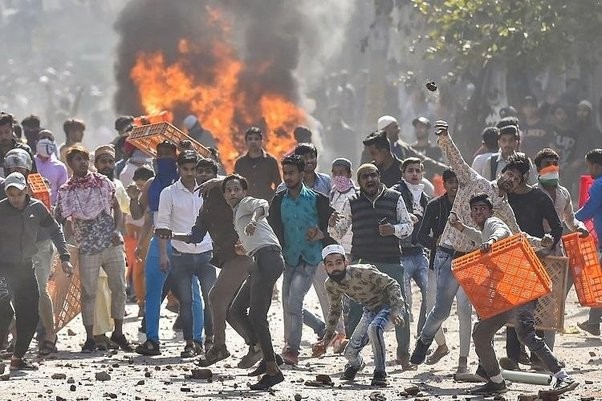Khushi Maheshwari, Pune
In Bhadrak, Odisha, a social media post on Facebook led to protests by a community which later escalated into full fledged violent communal conflicts. As a result, the Odisha government put a temporary ban on public gatherings and suspended the internet services for 48 hours.
A few of the departments have prohibited the use of social media and messaging platforms like WhatsAPP, X, Instagram and Facebook. The restrictions will stay in place for 2 days, and will only be lifted on 30th of September at 2 am. In the official order, Satyabrata Sahu- the additional Chief Secretary- explained how the ban had been extended to almost all social media platforms.
“Whereas, it has come to the notice of the State Government that in recent past there have been various violent communal incidents in Bhadrak and Dhamnagar areas due to social media postings; And whereas the District Administration has expressed concern of misuse of internet for spreading communal violence;” read the official order. It further stated that messaging platforms like Whatsapp, Facebook, X and other such media etc. have the potential to further escalate communal tension thereby leading to acts causing disturbance of public order in the district. Finally, it concluded that stopping the spread of such inflammatory and motivated messages to circulate in the aforementioned sites will bring back peace to the entirety of the Bhadrak district.
Restrictions on public gatherings were enforced after a minority community began protesting over a Facebook post. The post was allegedly hurting the religious sentiments of the minority by commenting on their religious beliefs. The protests turned violent after some of the protesters began attacking police personnel and in turn, physically harmed them.
Following incidents of stone pelting on police officers, where they suffered injuries, the security was amped up in the Bhadrak district by Friday night. A visual of the protest posted by ANI on X shows a number of police officers standing guard in areas where the communal tension was concentrated.
The Indian Telegraph Act of 1855 was implemented along with The Public Suspension of Telecom Services (Public Emergency/ Public Safety Rules) of 2017 to curb the use of internet services.
As per police reports, the Santhia bridge was obstructed by 600 protesters, insisting on and demanding the arrest of the individual responsible for the post. When attempts to contain the violence were made, the protesters began pelting stones at the personnel, injuring a Deputy Superintendent of Police (DSP) and a sub-inspector. This information was corroborated in an order posted by Sub-divisional Magistrate, Monaj Patra.
This incident was reminiscent of a similar clash that occurred in 2017 over a facebook post leading to a month long curfew in the state.
